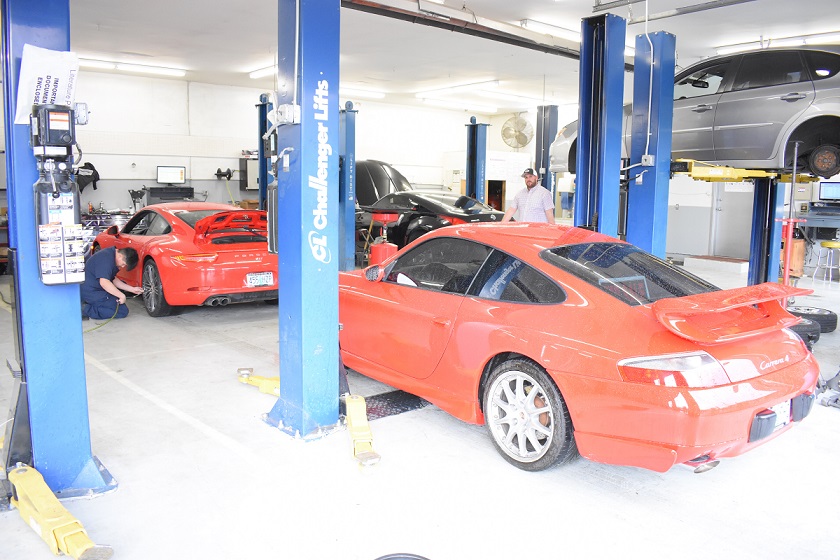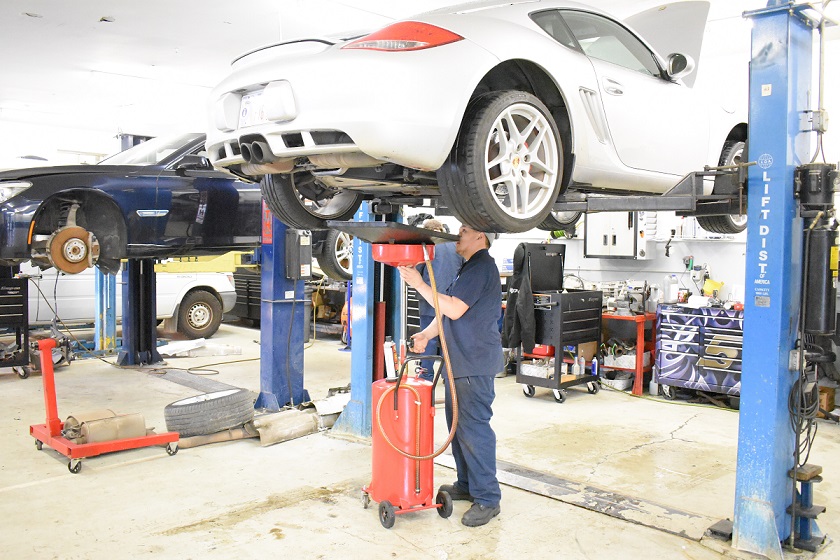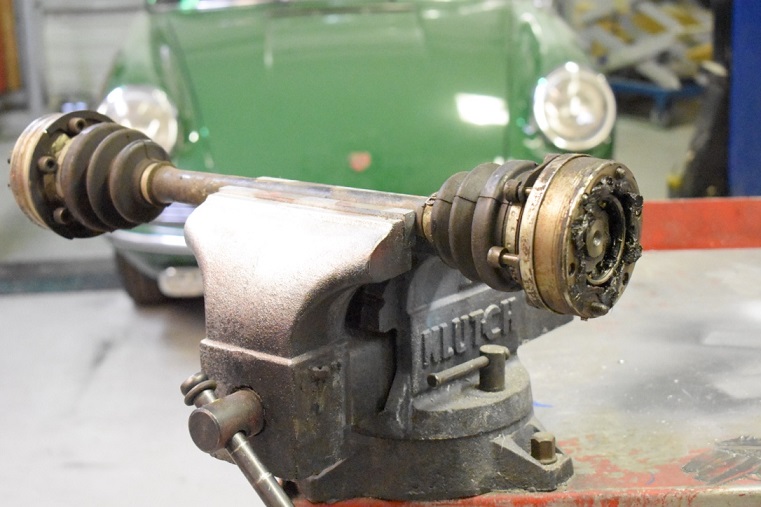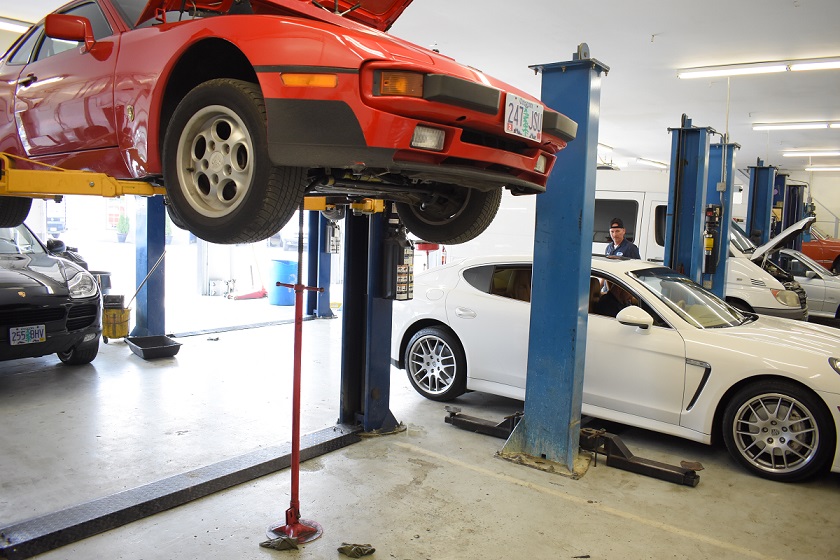
Got Porsche Problems? Our Porsche Mechanics Have Answers
If you own a Porsche, you have a very good relationship with your mechanic. And if you’re planning on buying one, you might want to think about which independent Porsche repair shop you’re going to trust with repairs.
Cooling Issues
Coolant distribution pipe resealing is a common procedure on Porsche Panamera and Cayenne. If this coolant leaking develops on your Porsche, you may not see symptoms of coolant dripping onto your garage floor because the seal that fails is located above the center of the engine inside the “valley”.
This causes the coolant to puddle on top of the engine between the cylinders. It is important to have your Porsche mechanic check your cooling system during each routine maintenance. If you notice any musty smell coming from your engine it is important to drop by Steve’s Imports to have us take a peek under the hood.
We have seen pattern failure with the Porsche expansion tanks especially on the Boxster 986. Being that these cars are nearly 20 years old now, we see that these cooling systems begin to break down due to the excessive heat and pressure that they operate under.
If your Porsche is running hot or shows signs of coolant leakage such as wet carpet in the trunk behind the engine, pull over immediately and give us a call.

Engine
Excessive engine smoke usually is a terrifying thing to see coming from your Porsche 911 or Boxster. Fortunately in many cases, it does not mean that your engine is due for a rebuild, instead, it may possibly be from excessive overfill of oil which is common for shops that do not have proper Porsche experienced technicians.
Porsche’s oil capacity is much higher than most performance vehicles and must be properly filled when the vehicle as at the correct operating temperature and on completely level ground.
Another common cause of excessive engine smoke is caused by a faulty Oil Separator. This component separates the air from oil and commonly fails internally. If you begin to see so much as a puff of smoke from your exhaust on your 996 or 986 it is important to have this issue inspected by an experienced Porsche mechanic.
If you have owned or are considering owning a Porsche 996 or 986 between the years of 2000 and 2005, or 997 from 2006 to 2009 then there is a very good chance you have heard about the notorious IMS (Intermediate shaft) bearing failure. The intermediate shaft bearing commonly fails on the Porsche 996 and 997 models.
It is located in the front of the engine behind the transmission. The failure is caused by the bearing becoming washed out, or the in some case the retaining hardware can fail. Fortunately, if you own a 996 or 986 it is a serviceable bearing and should be replaced if it has not already been. If the bearing fails, it will destroy your engine.
Porsche has used timing chains for many years. It is an effective design for these high-performance engines. However timing chains do stretch, and chain guides do become worn. Starting from the first year Porsche 911 to the most recent Cayenne, timing chain failure, if not dealt with, can cause internal interference in the valve train and lead to catastrophic failure.
Fortunately, we have the tooling to check the chain on both the classic and modern Porsche motors.

Steering & Suspension
ABS warning lights can be triggered on your Porsche for no reason other than that your ABS Electronic Module has failed. It is a rather common failure on Porsche and can be replaced, and in some cases rebuilt.
CV Joints can cause by normal wear and tear, however, Porsche engines put a higher demand on the strength of the CV (constant velocity) joint than most vehicles. It is important to check the grease boots for tears or cracks.

Transmissions
If you are having issues getting your Porsche into gear on your manual transmission, or you are experiencing a grinding sound when shifting, this is likely the cause of worn synchros. It is important to make sure the transmission is serviced at regular intervals.
Porsche Automatic transmissions are a serviceable unit and should be serviced using proper Porsche equipment and with Porsche transmission fluid. A common misconception is that modern Porsche cars have filled for life or unserviceable transmissions.
